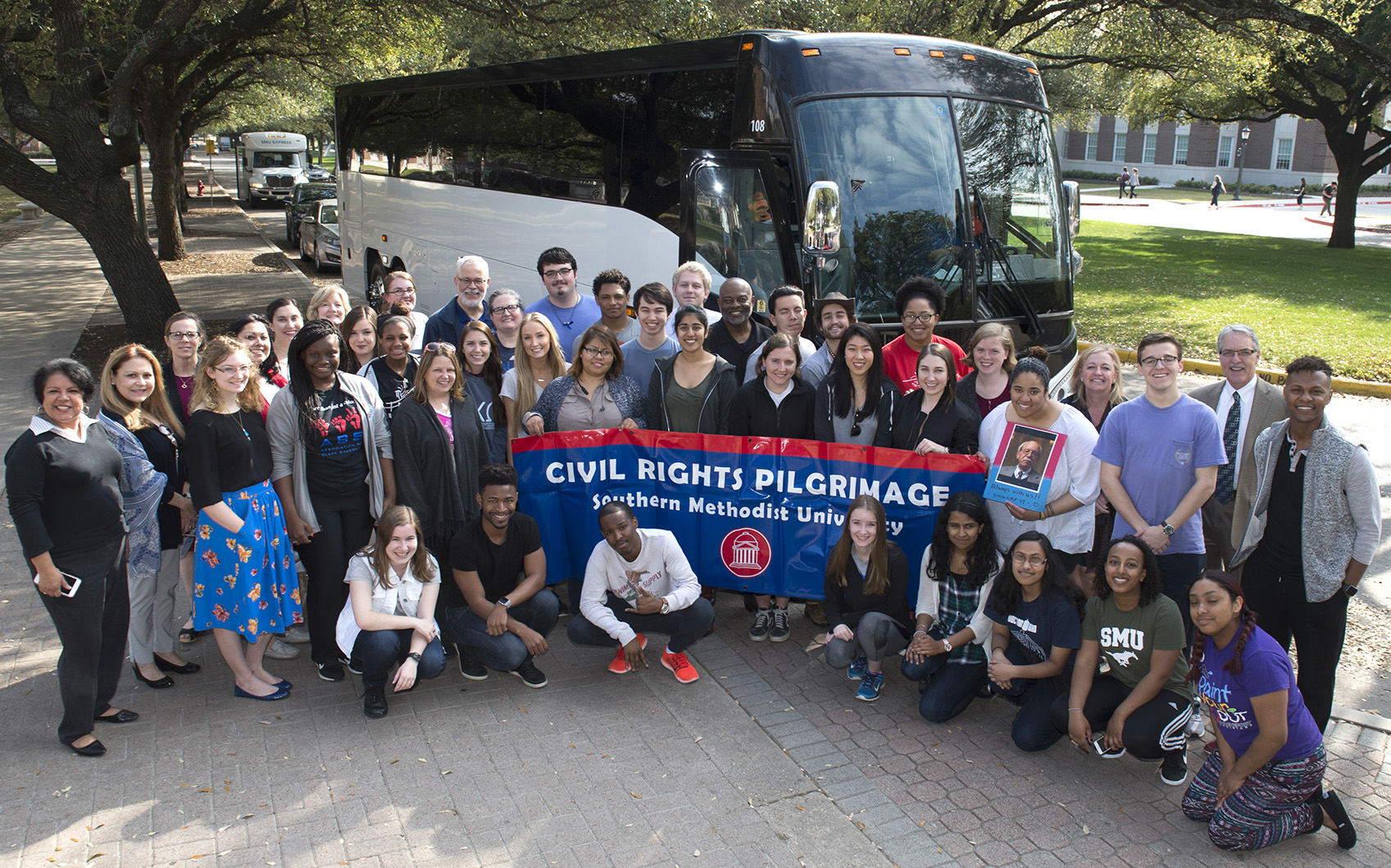'The March Continues’ for Hope Anderson
SMU graduate receives John Lewis fellowship that will address some of Atlanta’s biggest social problems
By Denise Gee
SMU News & Communications
DALLAS (SMU) – Newly minted SMU graduate Hope Anderson is one of only 30 American and European college students selected to receive a human rights fellowship honoring civil rights icon and congressman John Lewis (D-GA) and focused on restorative justice in Atlanta.
Anderson will participate in a John Lewis Fellowship July 5-30, collaborating on a public policy-blueprint for resolving some of Atlanta’s biggest social problems, from the school-to-prison pipeline to residential segregation.
As part of her fellowship, sponsored by Humanity in Action and The National Center for Civil and Human Rights, “we’ll be exploring what civil rights means in 2017,” says Anderson, a Richardson native who earned SMU degrees in human rights, history and sociology May 20.
“We’ll also be looking into how Atlanta can create a bigger eco-system of rights.”
Anderson credits SMU Dedman College faculty and staff members for preparing her for the fellowship, which she learned about from Kathleen Hugley-Cook, director of the University’s Office of National Fellowships and Awards.
She also credits the late political science professor Dennis Simon, who co-led SMU’s Civil Rights Pilgrimage, and Embrey Human Rights Program Director Rick Halperin and Associate Director Bradley Klein, for being “some of the most pivotal people in my life.”
“The Civil Rights Pilgrimage experience shattered the ‘safe distance’ between our lives and the reality of U.S. racism,” Anderson says. “Dr. Simon and [2008 Perkins Theology alum] Ray Jordan taught us to recognize our privilege today and find our own steps in the march. It’s not an easy thing to unearth your history or see where you fit in this bigger story of struggle and oppression. But we have to take the risk and cross that bridge.” (For more of Hope’s thoughts about that, see “The March Continues.”)
Anderson says the Embrey Human Rights Program at SMU – one of only seven U.S. universities to offer an undergraduate degree in the field – “took us all out of our comfort zones and empowered us to put our knowledge into real-world action.”
“Dr. Halperin’s introductory course, America’s Dilemma, forced us to unpack what we thought we knew to make room for what we didn’t know,” she says. “Many of my classmates and I wondered, how was it OK that we had gotten to that point not knowing about the murder of Emmett Till – or America being the only industrialized Western nation still using the death penalty? Such subjects forced us to have some hard conversations with each other and ourselves. But fortunately we had great mentors to help us understand how to apply that knowledge.”
While at SMU, Anderson immersed herself in programs involving field-based research in four countries for SMU’s Engaged Learning Program and the School for International Training (SIT) Study Abroad’s International Honors Program. Those countries included Nepal, Jordan, Chile and the U.S. She also served as a student-leader for SMU’s Student Leadership Initiative, the Civil Rights Pilgrimage and the Embrey Human Rights Program (for which she helped plan its Southern USA death row-focused tour scheduled for Aug. 3-13).
 2017 Civil Rights Pilgrimage |
Anderson, a Phi Beta Kappa Honors Society and University Honors Program member, also received a prestigious “M” Award, a Dedman College Scholarship, Caroline M. Jones Memorial Scholarship, Robert Mayer Undergraduate Research Fellowship and Agha Faran Khan Scholarship. The former Maguire Public Service Fellow lived in SMU’s Service House and volunteered with such community programs and nonprofits as Readers 2 Leaders. She also served as an intern for CitySquare and the International Rescue Committee in Dallas, and for the International Justice Mission in Washington, D.C.
Anderson’s goal is to work with other young scholar-activists, universities and high schools to help develop human rights initiatives – especially in the South, where SMU is the only institution of higher learning to offer a B.A. in the subject.
“I want more people to know that this is one of the most challenging but amazing careers you can ever have,” she says. “Earning a human rights degree isn’t just about earning a living. It’s about making a living – and a difference. Our human rights program showed me how to put ideas, ethics, and even hope, into practice.”
Make a memorial gift for Dr. Simon in support of SMU’s Civil Rights Pilgrimage, co-sponsored by SMU’s Office of the Chaplain & Religious Life and the Embrey Human Rights Program.
Pledge support for SMU’s Embrey Human Rights Program within SMU Dedman College of Humanities & Sciences.
SMU is the nationally ranked global research university in the dynamic city of Dallas. SMU’s alumni, faculty and 11,000 students in seven degree-granting schools demonstrate an entrepreneurial spirit as they lead change in their professions, communities and the world
# # #
#21951-nr-06/19/2017-dg
